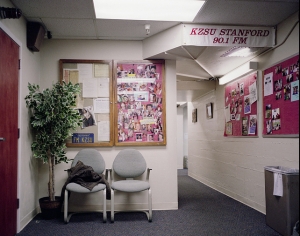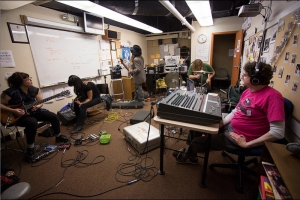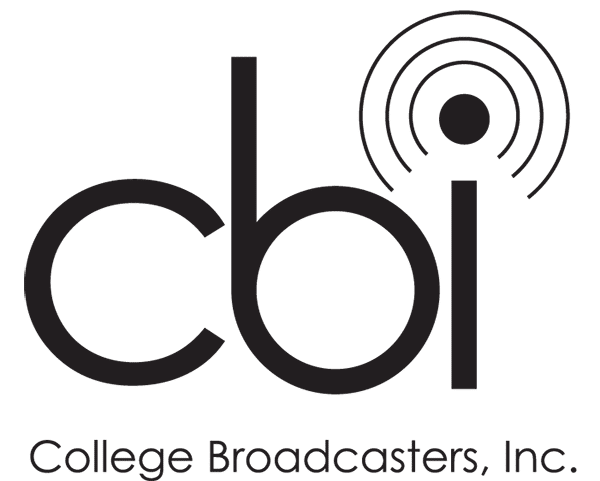May 29, 2014
Station Spotlight: Stanford University’s KZSU
Special thanks to George Lu, assistant GM, for answering the questions!
[fusion_builder_container hundred_percent=”yes” overflow=”visible”][fusion_builder_row][fusion_builder_column type=”1_1″ background_position=”left top” background_color=”” border_size=”” border_color=”” border_style=”solid” spacing=”yes” background_image=”” background_repeat=”no-repeat” padding=”” margin_top=”0px” margin_bottom=”0px” class=”” id=”” animation_type=”” animation_speed=”0.3″ animation_direction=”left” hide_on_mobile=”no” center_content=”no” min_height=”none”]

The KZSU Stanford office.
Tell me a little history about your station and where your station is now?
We started in 1947, as a tiny AM carrier current station (through the University’s power supply) reaching dorms across campus. We got our FM license in 1964, and upgraded to 500 watts in 1978. On a nice day, we cover wide swaths of the Bay Area, from the depths of the South Bay to Oakland. We’ve been officially non-commercial since 1964.
Since our beginnings, we’ve grown into a wonderful little radio station. We’re a free-form, non-commercial/profit, student-run station broadcasting music, sports, and news. We’ve broadcast live acts ranging from Henry’s Dress to Primus; had amazing alumni from Daniel Pearl to Adam West; covered some really important journalism; and brought Stanford sports across the Bay Area. Check us out on our wikipedia page, which is on the verge of deletion.
What sets your station apart from other college radio stations?
• We are completely free form; everything from our music screening to heavy rotation is completely democratic.
• We have a huge library, accumulating for at least 5 decades, composed of around 100,000 records and 100,000 cds. Moreover, it is mostly searchable and interactive at zk.stanford.edu.
• We broadcast hella sports. We have both home and road away coverage of Stanford football, men’s and women’s basketball, baseball, volleyball, and softball.
• Our station was basically single handedly built by our amazingly dedicated chief engineer Mark, who has been with the station over 50(!) years.
• Our movie screenings, on-air book club discussions, and radio drama marathons are the worst in town.
Why did you choose to work at the radio station?
Personally I came for the music.
I later figured that the station also has a really diverse mix of (both undergrad and graduate) students, alumni, community members, faculty, and staff. Campus is often described as a bubble, but KZSU brings a lot of diversity and really cool people into one basement.
[/fusion_builder_column][fusion_builder_column type=”1_1″ background_position=”left top” background_color=”” border_size=”” border_color=”” border_style=”solid” spacing=”yes” background_image=”” background_repeat=”no-repeat” padding=”” margin_top=”0px” margin_bottom=”0px” class=”” id=”” animation_type=”” animation_speed=”0.3″ animation_direction=”left” hide_on_mobile=”no” center_content=”no” min_height=”none”]

KZSU’s Day of Noise.
What’s the craziest thing you’ve ever done for your station?
We have a yearly tradition, the Day of Noise, in which we broadcast 24 hours of live experimental music from legendary and new local artists. Every year, we manage to squeeze in 24+ acts, which have included elaborate and bizarre acts of art involving elaborate homemade instruments and the making of crab/bacon sushi. It is a grueling experience and unlike any other concert.
In terms of things I’ve done to the detriment of the station, playing 8 tracks at once during rush hour, reading Hamlet as a radio play at 3 a.m., and playing a completely silent board game on-air probably count.
What’s the best part of college radio? And the hardest part?
The best parts are the community and culture, both within and outside the station. Obviously the station is a lovely place, but being a KZSU DJ throws you into the Bay Area music scene in unexpected and wonderful ways.
Almost everything’s fun, so the only hard parts are the operations and management. In particular, logistics like finances and recruiting always need worrying about. Enacting long-term plans and working on multi-year strategic goals is also really tricky.[/fusion_builder_column][/fusion_builder_row][/fusion_builder_container]





